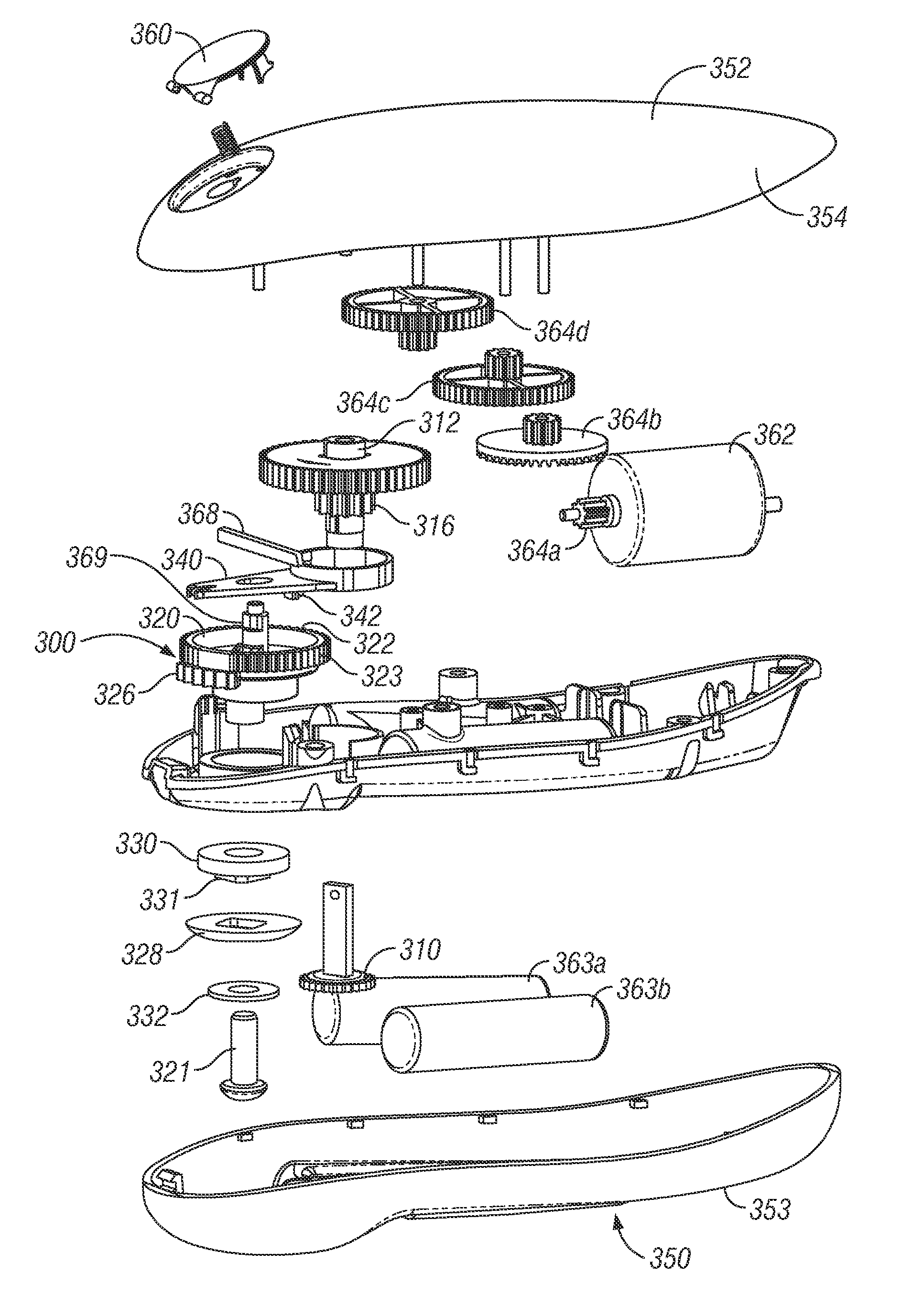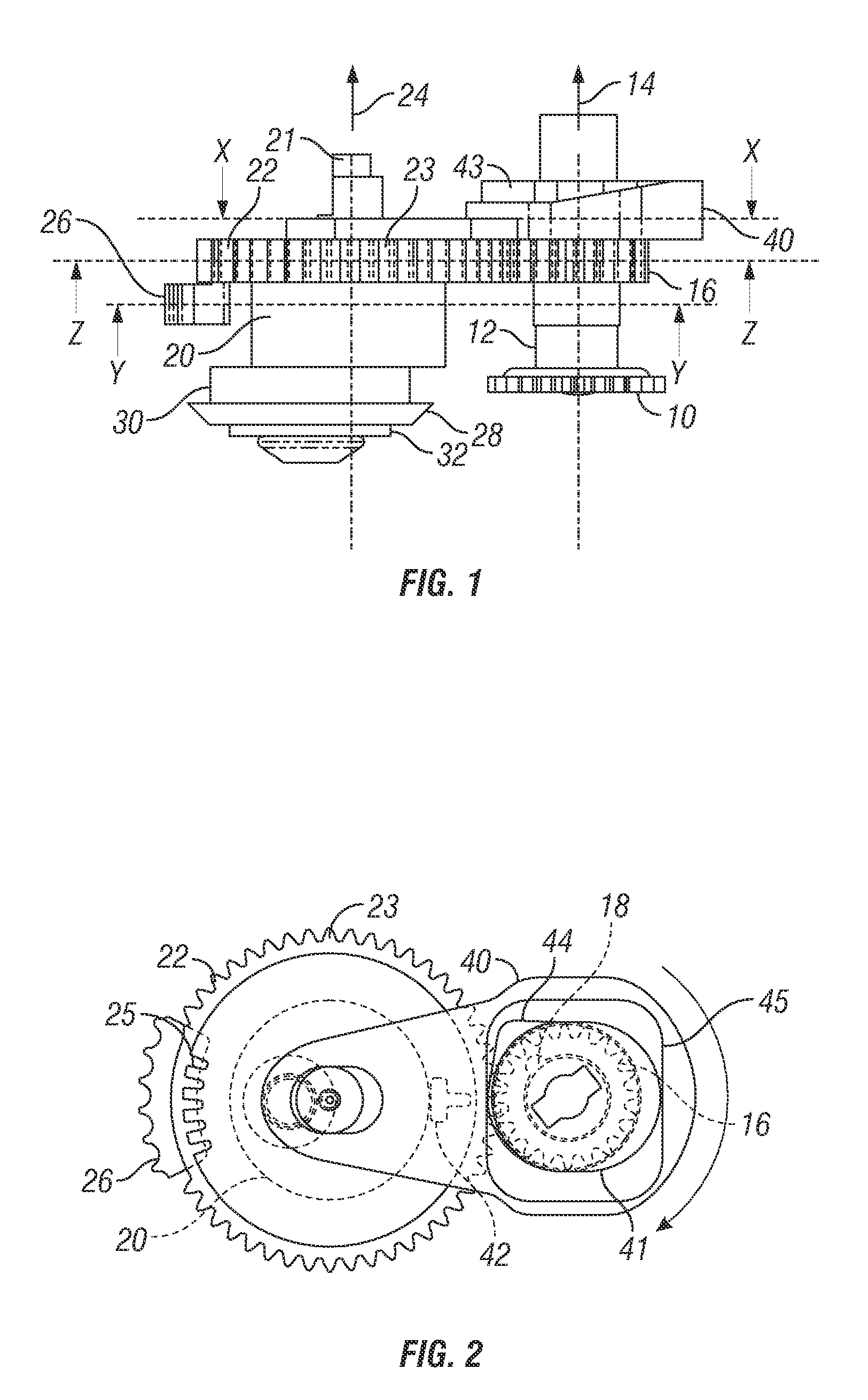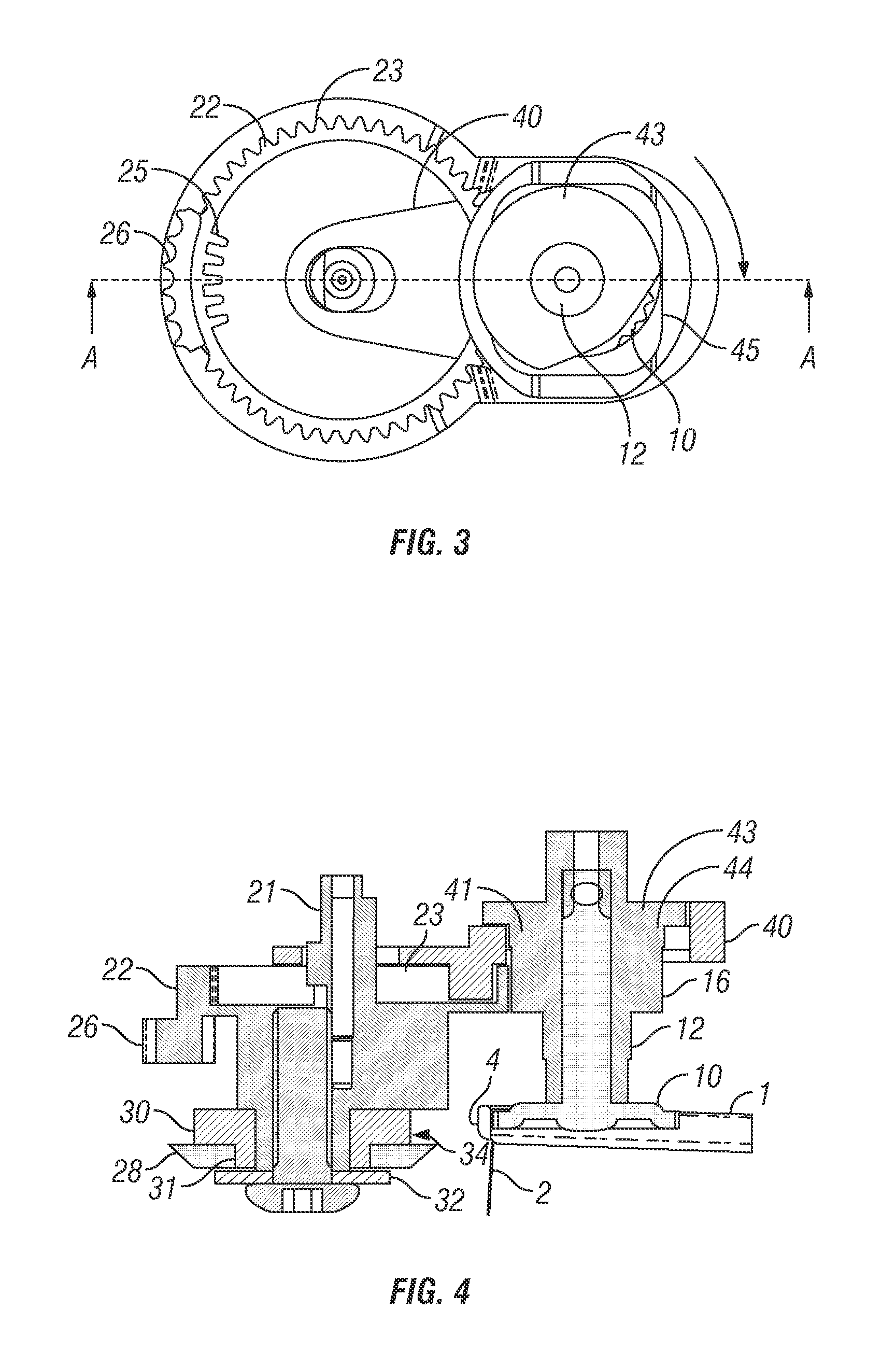Mechanism for can opener
a can opener and mechanism technology, applied in the field of mechanisms for can openers, can solve the problems of two separate kinds of actions, and it is difficult to fully automate a can opener of this type, and achieve the effect of widening the tolerance of grip and maximising the angle of cutting segments
- Summary
- Abstract
- Description
- Claims
- Application Information
AI Technical Summary
Benefits of technology
Problems solved by technology
Method used
Image
Examples
Embodiment Construction
[0069] Referring now to the drawings, at FIGS. 1 to 4 there is shown a first can opener mechanism herein in the start (i.e. can disengaged) position. The mechanism comprises toothed drive wheel 10 mounted on drive spindle 12 arranged for rotation about drive axis 14. Also mounted on drive spindle 12 is drive gear 16, which is arranged to mesh with outer gear teeth 23 of the cutter drive gear 22 provided to cutter wheel 20 for drivable rotation thereof on cutter spindle 21 about cutter wheel axis 24. It may be seen at FIG. 2. that on the left hand side of the cutter drive gear 22 several outer gear teeth 23 are missing and replaced by inner gear teeth 25 and upstanding curved rack of teeth 26, the function of both of which will become clearer from the later description.
[0070] The cutter wheel 20 is further provided with a circular cutting knife 28, which eccentrically mounts thereto such that as the cutter wheel rotates about its axis 24 the cutting knife 28 is brought into close pr...
PUM
 Login to View More
Login to View More Abstract
Description
Claims
Application Information
 Login to View More
Login to View More - R&D
- Intellectual Property
- Life Sciences
- Materials
- Tech Scout
- Unparalleled Data Quality
- Higher Quality Content
- 60% Fewer Hallucinations
Browse by: Latest US Patents, China's latest patents, Technical Efficacy Thesaurus, Application Domain, Technology Topic, Popular Technical Reports.
© 2025 PatSnap. All rights reserved.Legal|Privacy policy|Modern Slavery Act Transparency Statement|Sitemap|About US| Contact US: help@patsnap.com



